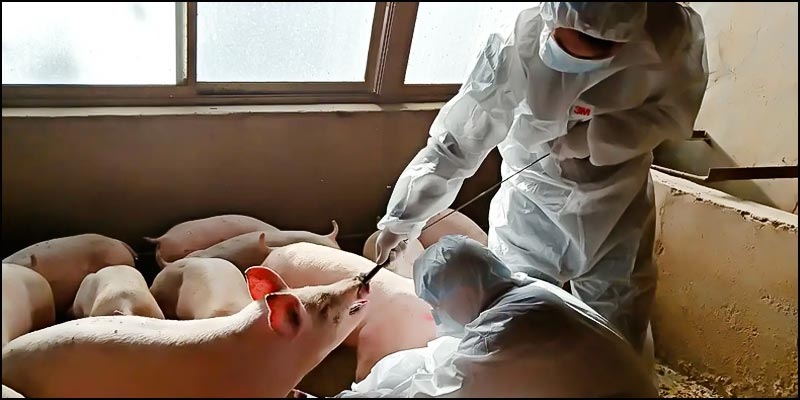New 'highly infectious' virus found in China; another pandemic feared


Send us your feedback to audioarticles@vaarta.com



The global catastrophic effects caused as a result of the novel coronavirus, that originated in China's Wuhan, are far from over as the world still continues to see a rapid increase in the number of infections, while countries, including India, have been struggling to curb the same.
Meanwhile, reports of a new strain of influenza virus found in pigs in China, have caused panic among people as the virus could possibly be transmitted to humans and result in another potential pandemic, according to experts. According to a research article entitled 'Prevalent Eurasian avian-like H1N1 swine influenza virus with 2009 pandemic viral genes facilitating human infection,' published on June 29 in the Proceedings of the National Academy of Sciences of the United States of America journal, "A recently emerged genotype 4 (G4) reassortant Eurasian avian-like (EA) H1N1 virus bears 2009 pandemic (pdm/09) and triple-reassortant (TR)-derived internal genes and has been predominant in swine populations since 2016. G4 viruses bind to human-type receptors, produce much higher progeny virus in human airway epithelial cells, and show efficient infectivity and aerosol transmission in ferrets."

The paper further added, "Moreover, low antigenic cross-reactivity of human influenza vaccine strains with G4 reassortant EA H1N1 virus indicates that preexisting population immunity does not provide protection against G4 viruses. Further serological surveillance among occupational exposure population showed that 10.4% (35/338) of swine workers were positive for G4 EA H1N1 virus, especially for participants 18 y to 35 y old, who had 20.5% (9/44) seropositive rates, indicating that the predominant G4 EA H1N1 virus has acquired increased human infectivity. Such infectivity greatly enhances the opportunity for virus adaptation in humans and raises concerns for the possible generation of pandemic viruses."
Urgent measures to monitor people working with pigs have been called for by the researchers. James Wood, head of the department of veterinary medicine at Cambridge University, stated, "The work comes as a salutary reminder that we are constantly at risk of new emergence of zoonotic pathogens and that farmed animals, with which humans have greater contact than with wildlife, may act as the source for important pandemic viruses."
Follow us on Google News and stay updated with the latest!
-

Anvika Priya
Contact at support@indiaglitz.com




 Follow
Follow









-a3e.jpg)
-3c4.jpg)
-e5c.jpg)
-e66.jpg)
-71b.jpg)
-5d5.jpg)
-adc.jpg)
-798.jpg)

-7c2.jpg)































Comments